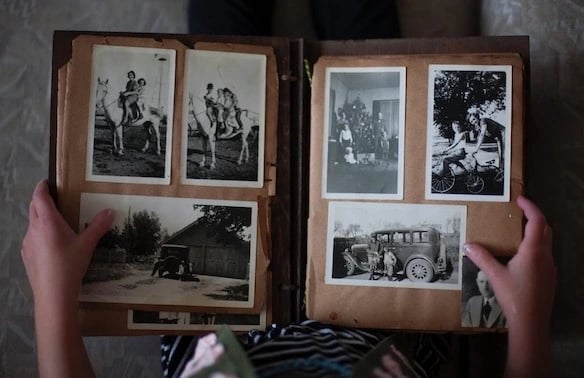The Effect Nostalgic Activities Have On Residents' Mental Health

Staff and managers at senior living communities understand that they have a responsibility for the well-being of residents, handling various issues such as mental illness, including traumatic stress. Ensuring physical health and safety for residents is the top priority for anyone working with older adults. In addition, it is important to ensure that residents have the support they need to maintain their mental health.
Research suggests that depression is prevalent among residents in senior living facilities, with as many as 30% showing symptoms of depression. Making mental health care available to residents is the first strategy for addressing well-being.
In addition, Experts say that there is a connection between feelings of nostalgia and mental health. Senior living staff can help residents engage in conversations or activities that inspire feelings of nostalgia. Experts have found thinking or talking about memories can trigger positive emotions and improve mood.
Engagement directors at senior living communities are especially well-equipped to plan activities that promote a sense of nostalgia for residents. Activities such as vintage movie showings, playing music from decades past, or offering classes on writing a memoir are ways that senior living communities help residents tap into nostalgia and boost their moods.
Benefits of Nostalgia for Residents
Nostalgia can be a positive emotion for people of any age. In the case of older adults living in retirement communities, experiencing nostalgia can have individual benefits, and it can also be a tool for connecting residents socially.
Increased sense of self
Some research shows that nostalgia and memories can reconnect individuals to their own past. Engaging with memories can remind people about key life events, people and places that were important to them in the past, and the values they held throughout their lives. A stronger sense of their past may strengthen their sense of who they are in the present.
Invoking feelings of nostalgia may be similarly helpful for adults struggling with symptoms of dementia.
Mood boosting
Thinking back to happy times can improve well-being, according to some research. For individuals dealing with negative emotions, spending time focusing on memories that make you feel good can be calming. The warm feelings from reminiscing and revisiting positive emotions or events can settle people who struggle with emotional regulation and help combat feelings of isolation or loneliness.
Building connections
Talking about past events can be a way for older adults to connect with younger family members. Telling stories from the past can ensure that memories and family history are passed along between generations. It can foster social connectedness between seniors and grandchildren or other loved ones.
In addition, talking about memories of past events can be a bonding activity for adults living in senior communities. Talking about the past can illuminate commonalities and build friendships between community members.
Increasing optimism and motivation
Some research has found that tapping into memories of past success can improve motivation to overcome challenges in the present. People who consider past achievements and the skills that help them succeed may feel more optimistic about their ability to handle difficult situations. This may also increase motivation and energy that can help with maintaining physical health and staying active.
Ways Senior Living Communities Can Incorporate Nostalgia into Daily Activities
Directors of engagement can integrate nostalgia into the life of a community. Special events can capture the feelings of times past for residents. In addition, staff can talk about residents' memories as a part of daily interactions.
Movie nights
The broad availability of movies and shows from past decades makes vintage entertainment an easy option for indulging in nostalgia. Directors of engagement can even use online activity planning platforms such as engage to poll residents about which movies from the past they would enjoy revisiting.
Communities could offer themed series of movie showings, such as past Best Picture winners or films starring a particular performer.
Music
Music is another easily accessible form of entertainment, and research shows that music is a trigger for positive memories. Facilities can play recorded music in dining facilities or other common areas.
Offering concerts with live musicians who specialize in music from other time periods may be a popular activity for residents. For communities with active residents, dancing could be a fun addition to the activity.
Memoir recording and writing:
Many seniors would love an opportunity to capture and share important memories, ranging from the happy to the bittersweet. Engagement directors can schedule classes with an instructor to give classes on memoir writing. Alternatively, directors can set up a memoir-writing group for residents who want to share their memoirs with others.
Giving seniors access to technology to create video or audio recordings is another way to help residents talk about and preserve memories for their loved ones.
Asking questions
Staff can engage residents in informal conversations about the past. Encourage staff to ask residents about family photos, artwork, or other personal items that have emotional significance. These conversations can boost self-esteem, combat loneliness, and engage residents with happy memories.
Encouraging family engagement
Keeping residents connected to family members has gotten easier with technology like video conferencing, email, and text. Staff at senior living communities can assist seniors by teaching them to use communication technology and helping them schedule time to connect with family. Shared access to online family portals like the one in the engage platform allows residents and their families to share memories by uploading photos and videos.
In addition, directors of engagement can use community newsletters or email communications to encourage family members to reminisce with their loved ones and ask questions about the past.
How Engagement Software Can Promote Nostalgic Activities
Engagement platforms can help senior living staff create enrichment activities that promote healthy nostalgia and improve the mental well-being of residents. With Engage, you can create a calendar of activities like vintage movie nights and concerts. The platform can track resident feedback so you are able to plan events that meet their tastes.
The engage software system from Eldermark also offers an easy portal for residents to connect and share memories with loved ones. The platform has tools to capture residents' life stories, photos, and videos and share them with family and staff members.
To learn more about how engage can connect your residents, their natural supports, and your workforce in one easy-to-use portal by scheduling a demo today!




